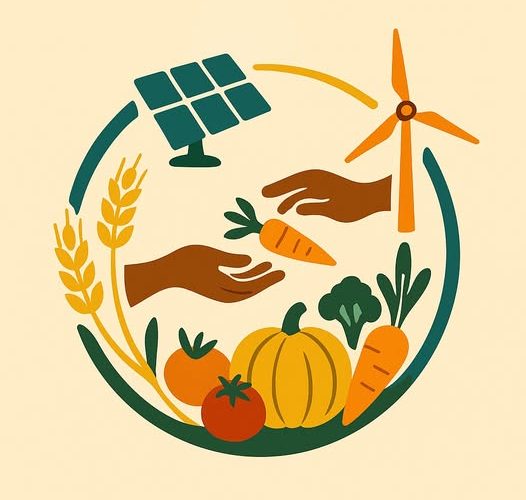Harvest Thoughts
Living in the Generous Circle of Grace
Revd Adrian Roux
Harvest celebrations should be more than beautiful displays of produce. When the world is crying out for justice, sustainability, and hope, they should challenge us as disciples to recognise grace, and to respond to it with loving grace. In other words, Harvest should challenge us to take our place within God’s “generous circle of grace.”
Gracious provision is as ubiquitous as our efforts to claim independence. Yet even if we can harness solar energy, we cannot create the sun; even if can build wind turbines we cannot summon the Westerlies that power them. Every life exists within a web of divine generosity operating far beyond our control.
Psalm 65 recognizes that God “visits” the earth, active and involved in the systems of life, not a casual observer, but as one who comes to sustain, to set things right, to provide what’s needed and to restore what’s been damaged.
Paul’s appeal to the Corinthian church to support struggling believers in Jerusalem, was both protest against stark inequalities plaguing their world; and acting so that communities could flourish and everyone have enough. This is not prosperity ‘gospel’, but the revolutionary gospel truth which declares that God provides abundantly so that all can live abundantly.
Jesus’ challenging words about worry in Matthew 6 don’t advocate reckless irresponsibility but address the kind of anxiety that paralyzes rather than motivates. Climate anxiety is real and valid, but Christ invites us to channel our concerns into faithful action. From Transition Towns movements building local resilience to community fridges in Lewisham where surplus food flows freely, modern communities embody this trust through practical sustainability.
The message confronts our culture’s failure to be content with enough, recognising that security comes through relationship rather than accumulation, through community connection rather than consumption. Living in the generous circle means practicing grateful recognition, cultivating enough-ness as spiritual discipline, acting with generous courage, and building mutual support networks.
This isn’t naive optimism ignoring genuine challenges like climate change and inequality. Rather, it’s hope grounded in God’s character revealed in Jesus Christ and the Spirit inspiring communities to live in revolutionary ways. Choosing simplicity over excess, renewable energy over exploitation, or community gardens over individual accumulation are practical ways of choosing, and living, God’s healing, justice, and peace.
The generous circle of grace isn’t just a theological concept. It is a way of life, a pattern of relationship, a source of hope for us and all the world.
#Psalm65 v9-13
#Matthew6v25-33


